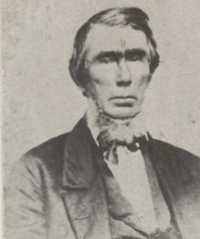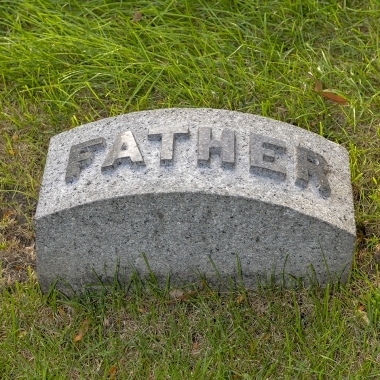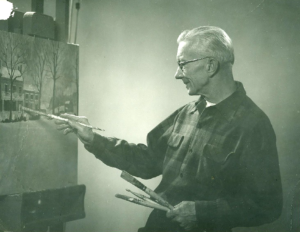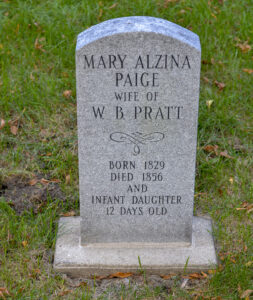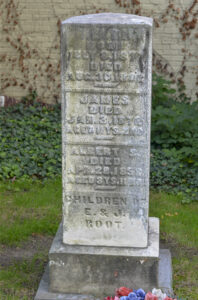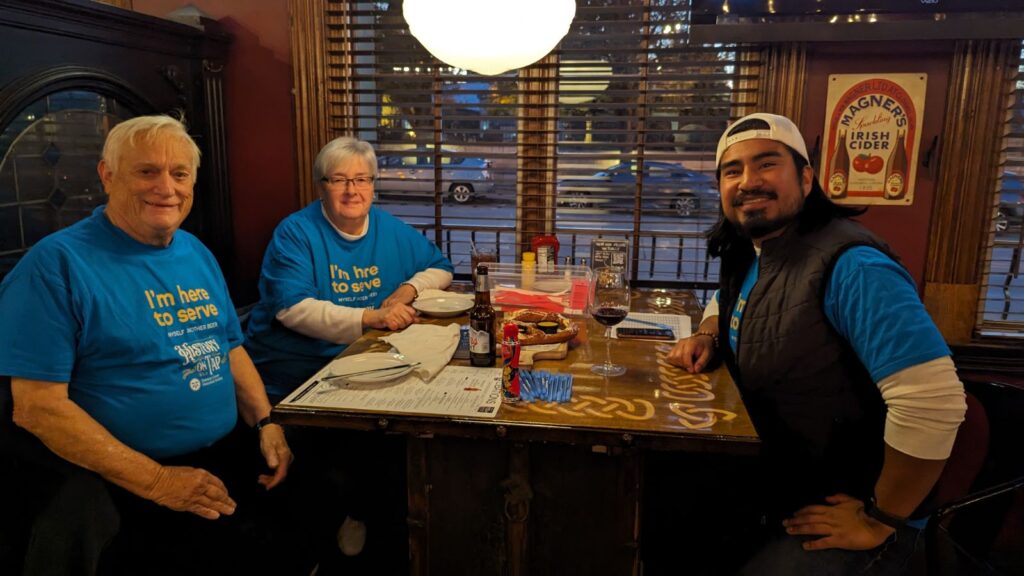Israel Porter Blodgett was an early settler of Downers Grove and noted abolitionist. He was very active in the underground railroad. In 2023, his home was acknowledged as an official site by the National Underground Railroad Network to Freedom. It is the only house in Downers Grove to be recognized.
Born in Amherst, Massachusetts on March 4, 1797, the day that John Adams was inaugurated second president of the United States, Israel Porter Blodgett was the 5th generation of Blodgetts to live in America. His ancestors were from England and his grandfather fought in the Revolutionary War. They were blacksmiths for generations and passed the trade down to Israel. Israel was the oldest of the 12 children in his family and as a young man became an apprentice blacksmith at the United States Armory in Springfield and went to work at Harper’s Ferry, Virginia. His co-workers were slaves and after advising them how to escape north to freedom, he lost his position. Returning to Massachusetts he made wagon wheels, gun barrels and anchor chains with swivels for ships. He married Avis Dodge in 1820 when he as 23.
By 1830 he made the decision to move west and organized the Hampshire Colony, a group going to Illinois, leaving his wife and children in Massachusetts until he could find a place to settle. His first stop in Illinois was Naperville where he brought his family to live. It was here in 1832 his family fled to Ft. Dearborn during the Black Hawk War while Israel volunteered under the command Capt. Joseph Naper to defend the homesteads.
By 1836 the Blodgett family moved to Downers Grove.They built a cabin on an Indian Trail now called Maple Avenue and raised their family of 7 boys and one girl. Israel farmed and operated a blacksmith shop while Avis kept house and saw to the education of her children. She believed it was important for them to have a good education and she taught her daughter Mary so she could also teach. With the help of neighbor Sam Curtiss, they improved Maple Avenue and planted trees along the road.
In 1846, after ten years living in a log cabin, Israel built a one-and-a half story house with rustic hand-hewn black walnut joists and simple clapboard exterior. This home became a stop on the Underground Railroad as the Blodgett’s helped slaves to escape to freedom. Often the lantern in their window signaled their house was a safe place for runaway slaves to find food, clothes and transportation to Chicago on their way to Canada. Today, the house is one of the oldest in Downers Grove and is currently on the west side of the Downers Grove Museum campus.
The family was saddened at the death of son Daniel in 1849 and then daughter Mary in 1856. Six of their sons reached adulthood and become valued citizens of the state. Three fought in the Civil War, one became a judge another a lawyer and one was Mayor of Waukegan, Illinois. Their youngest son Charles remained on the family land here and ran the farm when his father died in 1861. Avis lived to be 86 and died in 1882. The Blodgett land would eventually pass to Will, the son of Charles, who lived in Downers Grove until his death in 1933.
When Israel Blodgett died in 1861 he left a wife and six sons. He was recognized for being a friend to the pioneers and the local Native Americans. He was an experienced blacksmith, an inventor of a self-scouring plow to cut thru the prairie grass and an abolitionist. One of his last wishes was to be buried in a simple pine coffin as he found it would last better in the wet prairie ground. He told his sons to cover it with black cloth if they wanted to hide the pine box. This burial method would soon be used by many. His grave can be found in the Main Street Cemetery in Downtown Downers Grove.
The Downers Grove Historical Society honored Israel Porter Blodgett as the Founder of the Year in 2017.


